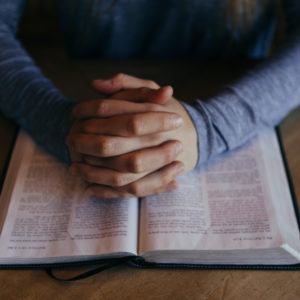Verse of the Day Devotion. Luke 22:15
“And He said to them, “I have earnestly desired to eat this Passover with you before I suffer.” – Luke 22:15
Our focus verse today along with the verses that follow up to 23, speak of the institution of the Lord’s Supper. They are now in the upper room of a house at around twilight which the Spirit led them to, and Jesus is telling them what will follow. “And when the hour had come He reclined at the table, and the apostles with Him. And He said to them, I have earnestly desired to eat this Passover with you before I suffer; for I say to you, I shall never again eat it until it is fulfilled in the kingdom of God.” Luke 22:14-16. To recline at the table was tradition at this time. They would be around a table on the floor, in a reclining position with a pillow under their arms. The last supper, as all celebrations of the Lord’s Supper, was meant for those who professed to be Jesus’ followers, hence only His disciples were invited at this time. Paul lays this out in his first letter to the Church of Corinth.
“For as often as you eat this bread and drink the cup, you proclaim the Lord’s death until He comes. Therefore whoever eats the bread or drinks the cup of the Lord in an unworthy manner, shall be guilty of the body and the blood of the Lord. But let a man examine himself, and so let him eat of the bread and drink of the cup. For he who eats and drinks, eats, and drinks judgment to himself, if he does not judge the body rightly. For this reason many among you are weak and sick, and a number sleep. But if we judged ourselves rightly, we should not be judged. But when we are judged, we are disciplined by the Lord in order that we may not be condemned along with the world. So then, my brethren when you come together to eat, wait for one another. If anyone is hungry, let him eat at home, so that you may not come together for judgment. And the remaining matters I shall arrange when I come.” 1 Corinthians 11:26-34.
Paul declares the importance of this by saying we must examine ourselves before partaking of the wine and/or bread, to ensure we are worthy to take both the bread and the wine.
Next, He passes out the wine and the bread. “And when He had taken a cup and given thanks, He said, Take this and share it among yourselves; for I say to you, I will not drink of the fruit of the vine from now on until the kingdom of God comes. And when He had taken some bread and given thanks, He broke it, and gave it to them, saying, “This is My body which is given for you; do this in remembrance of Me.” Luke 22:17-19. He will not drink of the fruit of the vine again until the Kingdom of God comes. What is meant here is more clearly laid out in Matthew. “But I say to you, I will not drink of this fruit of the vine from now on until that day when I drink it new with you in My Father’s kingdom.” Matthew 26:29. Jesus looked forward to a future celebration of the Passover in heaven, one that He has not yet celebrated with His people. He is waiting for all His people to be gathered to Him, and then there will be a great supper, the marriage supper of the Lamb. “And he said to me, write, Blessed are those who are invited to the marriage supper of the Lamb. And he said to me, these are true words of God.” Revelation 19:9. This is the fulfillment Jesus was looking forward to.
In closing, The Last Supper was a significant event and proclaimed a turning point in God’s plan for the world. In comparing the crucifixion of Jesus to the feast of Passover, we can readily see the redemptive nature of Christ’s death. As symbolized by the original Passover sacrifice in the Old Testament, Christ’s death atones for the sins of His people; His blood rescues us from death and saves us from slavery. Today, the Lord’s Supper is when believers reflect upon Christ’s perfect sacrifice and know that, through our faith in receiving Him, we will be with Him forever. And because of the importance of this, it is imperative that we examine ourselves prior to taking communion. We are to reflect on the meaning of the ordinance and confess personal sin. Do we know what communion means, and are we taking it for that purpose? Are we actually walking out our faith and living in active relationship with God, allowing Him to do His sanctifying work in our lives? If so, communion is a sobering celebration of Christ and His church. If not, we make a mockery of the ordinance.
William Funkhouser MDiv, ThD, Founder and President of True Devotion Ministries.

